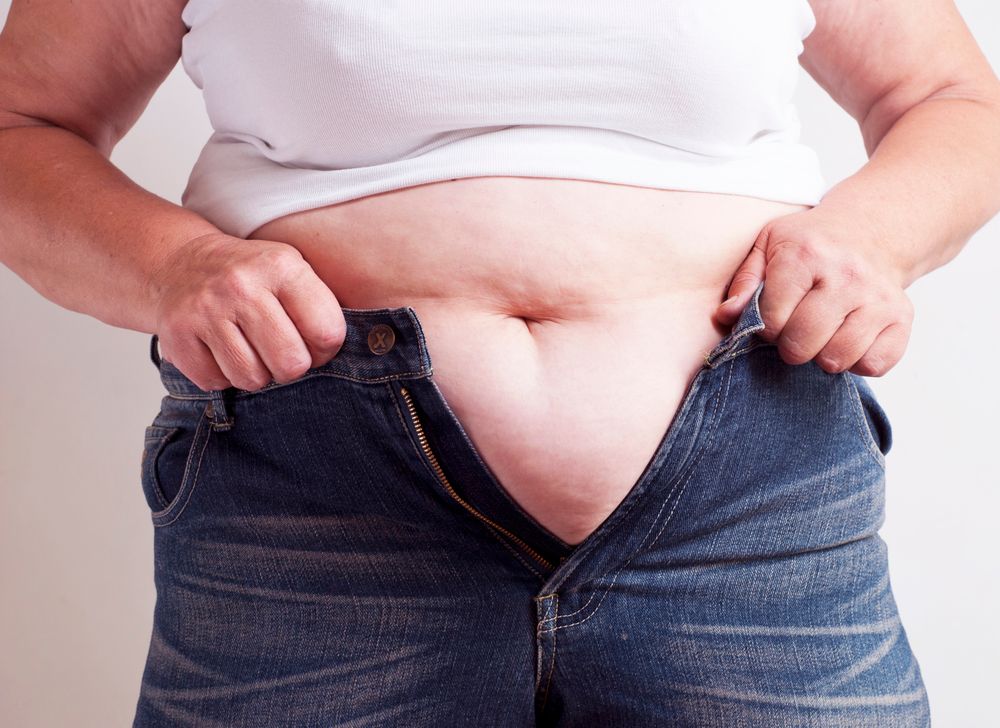
In that really annoying way that articles continue to perpetuate bad science, I offer two, one with good ideas, and one that slams a key premise of the first article
Most of us here on Saga so far are older, say, past fifty. As we age, we might notice how fat gathers or moves around. To our irritation, and most certainly to my aging father's, his belly grew in proportion to the loss of his upper body muscles.
The first piece I offer here runs down many of the same basic pieces of advice that you and I know from reading, and practice, and falling off the proverbial wagon. I started it with enthusiasm, as I often do, then fell into the black hole of bad science.
I'll explain in a sec:
:extract_focal()/https%3A%2F%2Fpocket-syndicated-images.s3.amazonaws.com%2Farticles%2F6804%2F1628879667_6116ba9ec0206.png)
The very first paragraph is the problem:
If it seems like it’s become harder to lose weight since you hit age 50, you’re not imagining things. “As you age, your metabolism starts to slow down, and a lot of your metabolism functions and organs and absorption—everything just gets a little less efficient,” says Katherine L Tucker, Ph.D., professor of nutritional epidemiology and director of the Center for Population Health at the University of Massachusetts-Lowell. You now need fewer calories than ever just to maintain your body mass, let alone reduce it.
Here's the issue. First, when we quote some pointy-head with a PhD it sounds like they have their facts straight. The issue is, as with all science including and most especially medicine, many doctors and doctorates stop keeping up with the changing science. Like technology, what is true this week may not be true next week.
And, folks get entrenched. It's rare that someone, like Dr. Gabe Mirkin, who coined the RICE protocol for injuries (Rest, Ice, Compression, Elevation), recants publicly so that further damage isn't done. That he did doesn't change that my primary care doc and many in the sports business continue to advise RICE, which has been shown to be a myth.
This is what makes bad science dangerous. Like blaming obese patients for being lazy. The folks who are lazy are are the doctors and researchers who refuse to move with the science and leave the old material behind where it belongs. The issue of metabolism is in precisely the same place.
When my father quit smoking, he switched to eating Jujubes all day long. That steady stream of sugar both ruined his soft tooth enamel and his body. He had no idea. That, not a slowing metabolism, was the real issue.
To that then, this:
Again, the opening paragraphs say it all:
Everyone knows conventional wisdom about metabolism: People put pounds on year after year from their 20s onward because their metabolisms slow down, especially around middle age. Women have slower metabolisms than men. That’s why they have a harder time controlling their weight. Menopause only makes things worse, slowing women’s metabolisms even more.
All wrong, according to a paper published Thursday in Science. Using data from nearly 6,500 people, ranging in age from 8 days to 95 years, researchers discovered that there are four distinct periods of life, as far as metabolism goes. They also found that there are no real differences between the metabolic rates of men and women after controlling for other factors.
These can't both be true. The paper is here:
https://www.science.org/doi/10.1126/science.abe5017
You can read the abstract, but the whole thing is behind a paywall. What we need to address is the issue of how our metabolisms slow down at middle age. That has been debunked.
The point is that when we slow down our movement, stop working and working out, eat more poorly and all other habits that can creep up on us over time, that has far more to do with the now completely nonsensical argument that our metabolisms slow down. We slow down, and love to blame genes and gender and everything else but what really is the issue: US.
The study did say that after sixty things do slow down a bit, but again, if you factor in high activity levels, careful eating and all the recommendations in the top article above, then your metabolism is unlikely to be the culprit at all.

In another article by The Washington Post about this same study,
another dietician weighs in on the factors we face after sixty:
“Studies have shown that the onset of obesity is frequently triggered by behavioral, medical and socioeconomic factors,” says Mary L. Rosser, director of integrated women’s health in the Department of Obstetrics and Gynecology at Columbia University Irving Medical Center in New York City. “Sedentary lifestyle, poor diets, stress, mental health, sleep deprivation, medical issues such as hypothyroidism, PCOS [polycystic ovary syndrome], diabetes and others contribute.”
For those other factors, I’d add genetics, medications, muscle loss (sarcopenia), hormones, the gut microbiome and all of the social determinants of health. The last category includes access to and quality of education, health care, neighborhood supports, economic stability, gender, race and more.
For my part this boils down to learning OUR unique bodies, what works and doesn't work for us, which is harder than looking for big easy trends or big easier excuses to avoid doing the real sleuthing work of understanding how, say, a kidney disease can be part of an obesity problem, or how stress from Covid or depression from losing a family member can affect our overall general health.
We are deeply complex and challenging beings, and because of this there really are very few simple answers. It's so damned tempting to try to find That One Thing, and there isn't one.
That said, if you're noticing mission creep around the middle or elsewhere, perhaps it's time to take a look at intake, the kind of intake, portion size and other factors which can lead to a bit extra when we aren't leaving ourselves slightly hungry after a meal. The body takes a while to catch up to the fullness message, and as fast eaters on the run that often means that we've eaten beyond our means.
Aside from that, there may be so many underlying conditions of which we're not aware. Quite often there are problems which don't present right away, there's no pain, or they also creep up with the weight.
So to that thought, I am reading Drop Acid by Dr. David Perlmutter. Jim S is, too, and I hope to have his input on what he thinks. It's about the uric acid problem that modern medicine is slowly beginning to realize is the underpinning to so many of today's modern diseases. So far it's quite the study, and if you happen to read it, I'd value your input to put your comments into another article.
I'm still in the first chapters. If you're a fan of Perlmutter's earlier work, you will like this. He is often at the leading edge of what's coming. Sometimes I find him a touch woo-woo, but so far, it's all solid.
Like the additional bit of weight I am still coaxing off my rear, solid, but not for long. I'm going to eat some celery and hummus.

Dear Walkabout Saga Reader:
If my work appeals to you, may I kindly invite you to consider joining those Patreon supporters whose generosity keeps the gas in my tank as it were. Those supporters get to dictate my content calendar, we engage as a community, and this website and its content acts in service to our collective best selves. I realize times are tight, but if you feel as though you are getting real value from these articles, any support is appreciated more than you know.
You can explore that option here.
However you decide to partake of my writing, thank you.

Comments powered by Talkyard.